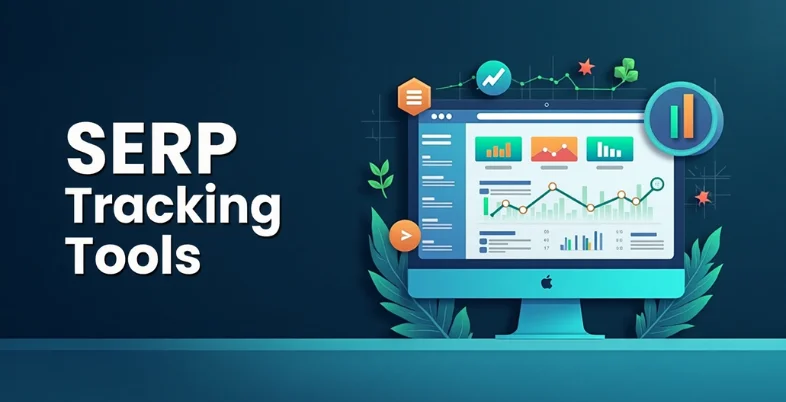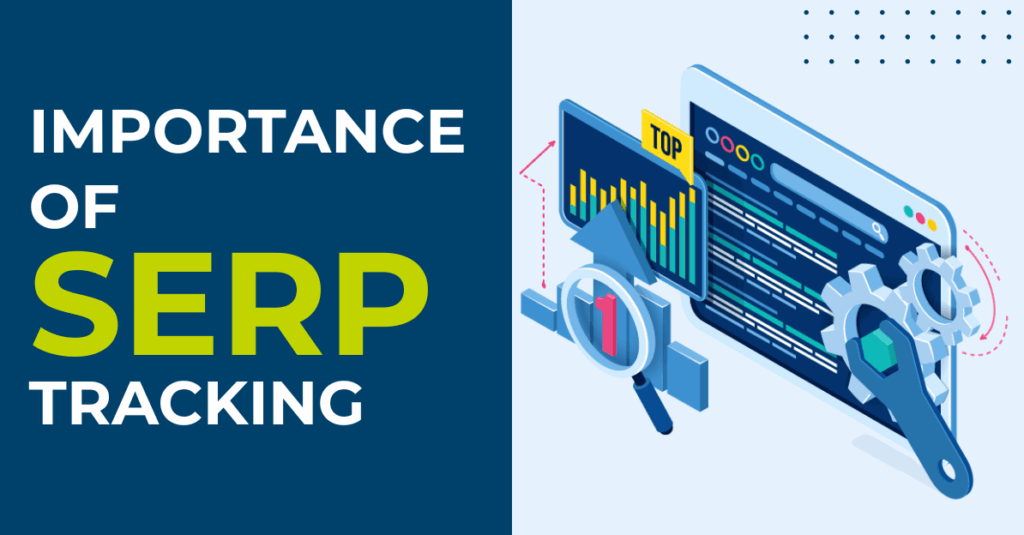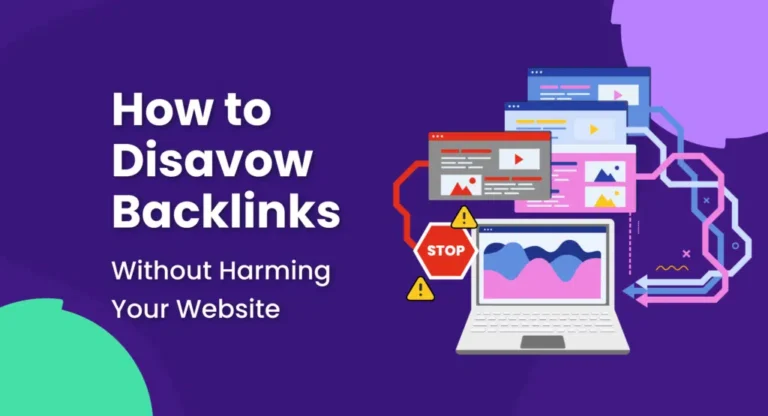How Bing SERP Tracking Works for Better SEO Results
Tracking Bing’s Search Engine Results Pages (SERPs) is vital for businesses seeking enhanced visibility and sustained traffic growth. Unlike Google, Bing employs a distinct algorithm with unique ranking factors, necessitating dedicated tracking.

A strategic approach to Bing SERP tracking enables businesses to monitor performance, assess competitor positioning, and refine SEO strategies for sustained success.
How Bing’s SERP Algorithm Is Different From Google
While Bing and Google share some similarities, they weigh ranking factors differently:
- Backlinks: Bing prioritizes quality backlinks but prefers exact-match anchor texts more than Google.
- User Engagement: Click-through rate (CTR), dwell time, and bounce rate play a bigger role in Bing’s rankings.
- Keyword Optimization: Unlike Google, Bing still relies heavily on exact keyword matches in titles, headings, and content.
- Multimedia & Social Signals: Bing places more weight on videos, images, and social media presence as ranking signals.
- Technical SEO: Bing prioritizes websites with structured data (Schema markup), fast load times, and clear HTML structure.
How Bing SERP Tracking Works
Bing SERP tracking involves monitoring and analyzing website rankings for targeted keywords over time. This process helps businesses identify trends, measure SEO performance, and adjust strategies accordingly. This is how it works:
Keyword Position Monitoring
Bing SERP tracking starts with monitoring keyword rankings to assess search performance. Tracking historical data helps businesses identify trends and adjust SEO strategies accordingly. Since rankings differ between desktop and mobile searches, a comparative analysis ensures comprehensive visibility.
Regular tracking is essential to adapt to algorithm updates, competitor activity, and changing user intent.
Competitor Analysis
Analyzing competitors’ rankings provides insights into why they outperform others on Bing. Examining their backlink strategies, content structure, and keyword optimization helps refine SEO efforts.
Tracking Featured Snippets and Bing’s rich results reveals competitive advantages. Businesses that leverage this data can develop a strategic approach to surpass competitors and improve organic rankings effectively.
SERP Feature Tracking
Bing integrates Featured Snippets, Knowledge Panels, AI Answers, and Local Packs into its search results, influencing visibility. Monitoring these features helps businesses understand which content formats Bing prioritizes.
Optimizing for SERP features ensures better organic reach by increasing the likelihood of appearing in prominent positions, and improving brand authority and click-through rates.
Ranking Fluctuation Analysis
Bing rankings shift due to algorithm updates, competitor actions, and user behavior changes. Identifying ranking fluctuations allows businesses to adjust their SEO strategy before losing visibility.
Monitoring technical issues, content updates, and search intent changes ensures sustained rankings. Quick responses to fluctuations help maintain search stability and competitive positioning in Bing’s SERPs.
Local SERP Tracking for Bing Places
Businesses targeting local audiences must track Bing Places rankings, customer reviews, and citations. Maintaining accurate NAP (Name, Address, Phone) consistency strengthens local SEO credibility.
Optimizing business listings with high-quality images, updated details, and active engagement improves visibility. A well-maintained Bing Place profile enhances local discoverability and attracts more potential customers.
Tracking Click-Through Rate (CTR) and Engagement Metrics
Bing prioritizes user engagement when ranking websites. Tracking CTR, dwell time, and bounce rate helps measure content relevance. Optimizing meta descriptions, title tags, and internal linking can improve user retention. Higher engagement signals strong content quality, increasing organic search rankings and maximizing visibility in Bing’s search results.
What are the Best Tools for Bing SERP Tracking
Several tools offer Bing-specific SERP tracking to help businesses monitor rankings:

1. SEMrush
SEMrush is a powerful tool for Bing keyword tracking, offering real-time ranking updates, competitor analysis, and backlink monitoring. It provides position tracking, site audits, and SERP feature insights, helping businesses refine their Bing SEO strategy.
2. Ahrefs
Ahrefs’ Site Explorer allows users to track Bing rankings, analyze organic keyword trends, and monitor backlink profiles. Its advanced keyword difficulty analysis helps businesses target achievable ranking opportunities while identifying competitor strengths.
3. Serpstat
Serpstat is ideal for tracking Bing ranking fluctuations and monitoring SERP feature appearances such as Featured Snippets and Local Packs. Its historical data tracking helps businesses understand long-term trends and adjust SEO strategies accordingly.
4. AccuRanker
AccuRanker delivers real-time Bing SERP updates with precise ranking insights for desktop and mobile. Its on-demand refresh option lets businesses instantly check ranking shifts, making it a great tool for fast-paced SEO adjustments.
5. Moz Pro
Moz Pro’s Bing rank tracking includes domain authority insights, keyword research, and site optimization recommendations. It helps businesses track performance over time, analyze competitor strategies, and strengthen their Bing SEO approach.
What are the Benefits of Bing SERP Tracking
Bing SERP tracking enhances search performance by revealing ranking trends and guiding SEO adjustments. It uncovers competitor strategies to help businesses refine their approach. Continuous monitoring boosts visibility while improving engagement and maximizing ROI. Here are the key benefits of SERP:

Higher Visibility on Bing
Tracking keyword rankings and optimizing content ensures stronger organic visibility in Bing’s search results. Regular monitoring allows businesses to adapt to algorithm changes, helping them stay ahead of fluctuations. Improved rankings translate to higher search traffic, increasing opportunities for conversions and long-term search dominance.
Competitive Advantage
Analyzing competitors’ keyword strategies, backlink profiles, and SERP feature dominance helps businesses refine their SEO approach. Understanding what works for top-ranking competitors enables data-driven adjustments that improve positioning. Staying proactive with competitor insights ensures a sustainable edge in Bing’s search rankings.
Improved Click-Through Rates
Optimizing title tags, meta descriptions, and content relevance enhances click-through rates (CTR) on Bing. Tracking CTR fluctuations reveals how searchers engage with listings, helping businesses refine messaging for higher user engagement. Increased CTR improves organic rankings and drives more targeted traffic.
Better ROI for Bing SEO Efforts
Bing SERP tracking ensures that SEO investments focus on high-performing strategies. By identifying which keywords, content types, and optimizations yield results, businesses can allocate resources more effectively. A refined strategy leads to higher traffic, better conversions, and maximized SEO ROI over time.
Conclusion
Bing SERP tracking is a must for businesses aiming for sustained visibility and higher conversions. With Bing’s unique ranking factors, continuous tracking ensures stronger rankings, better engagement, and a competitive edge. Investing in the right tools and strategies keeps businesses ahead, maximizing search traffic and long-term SEO success.






